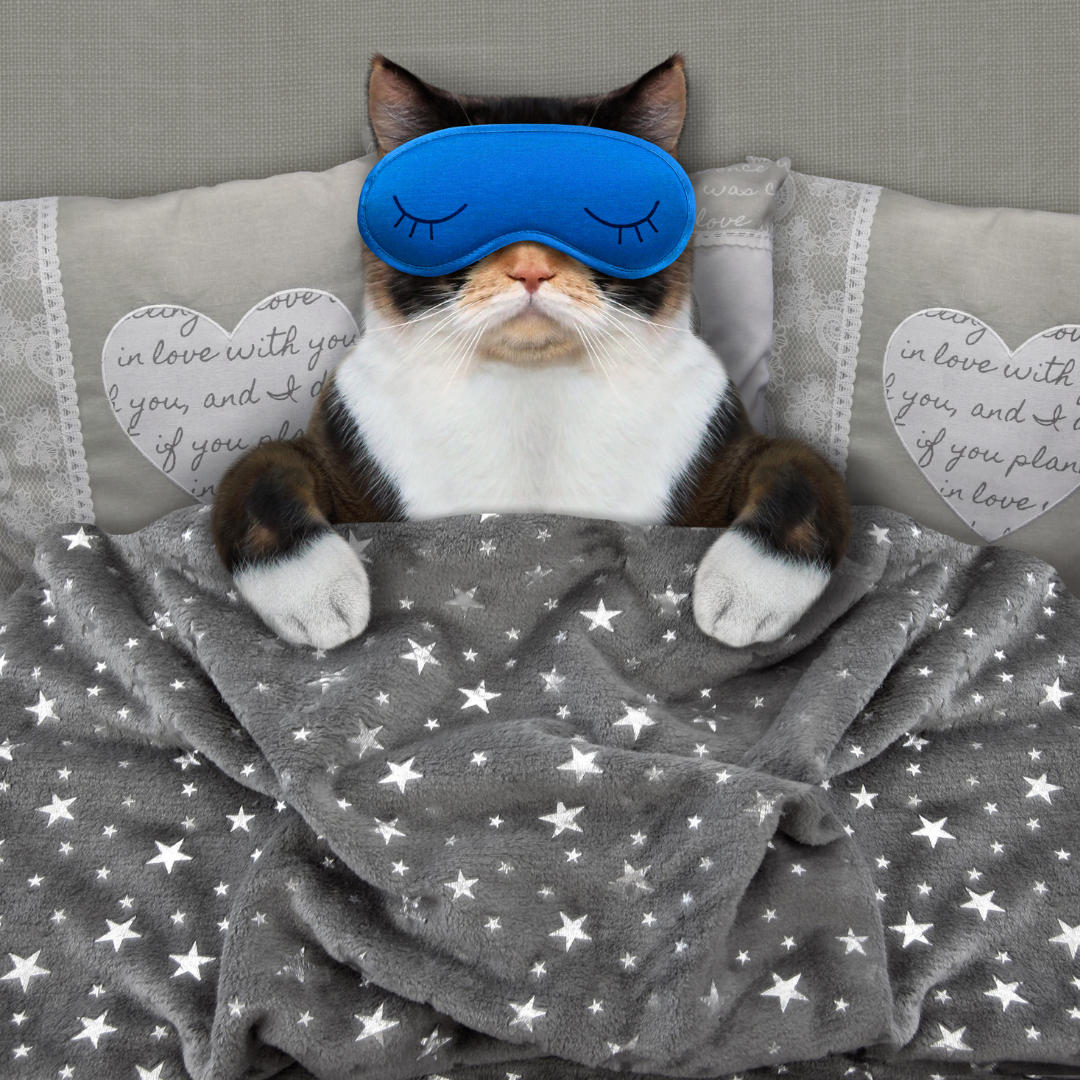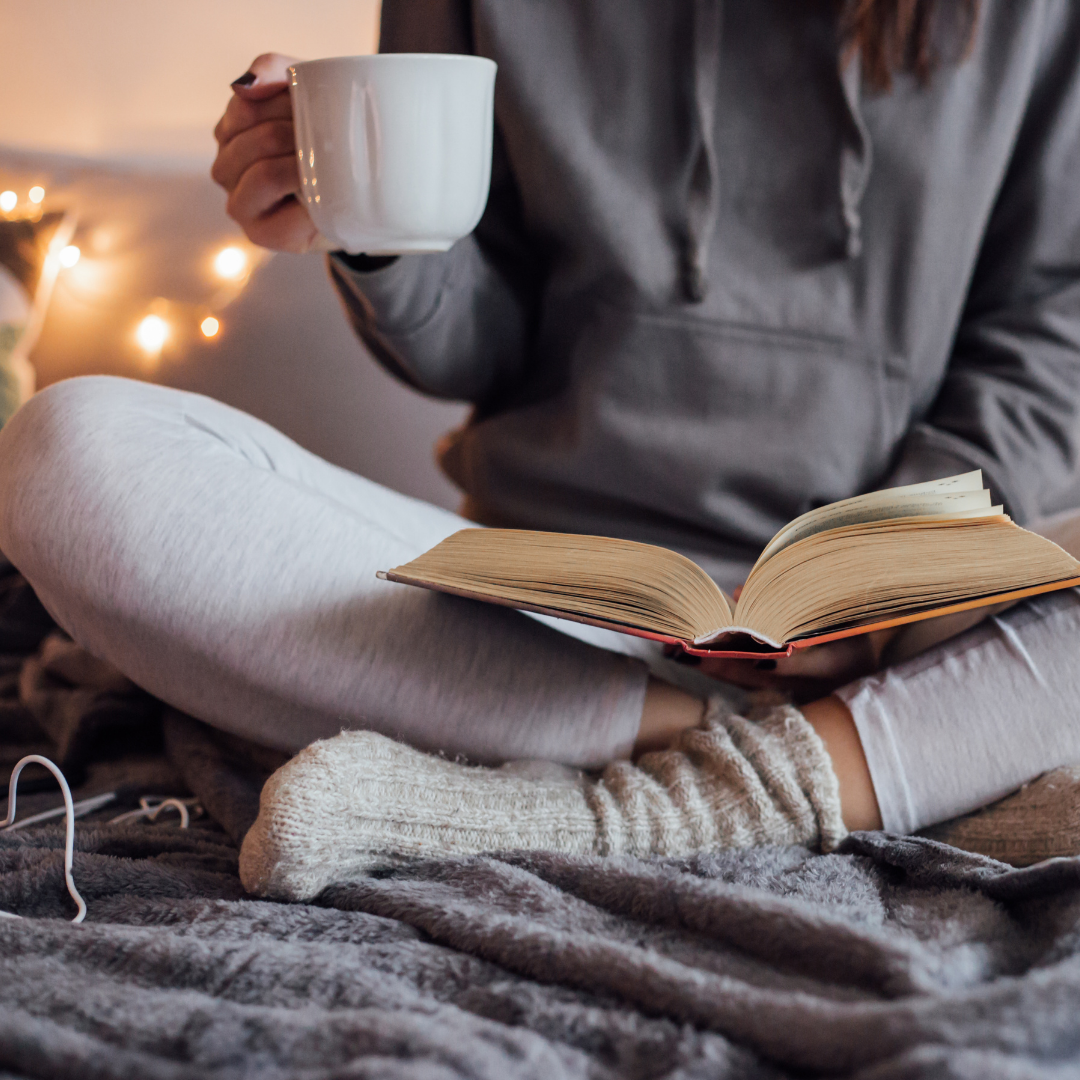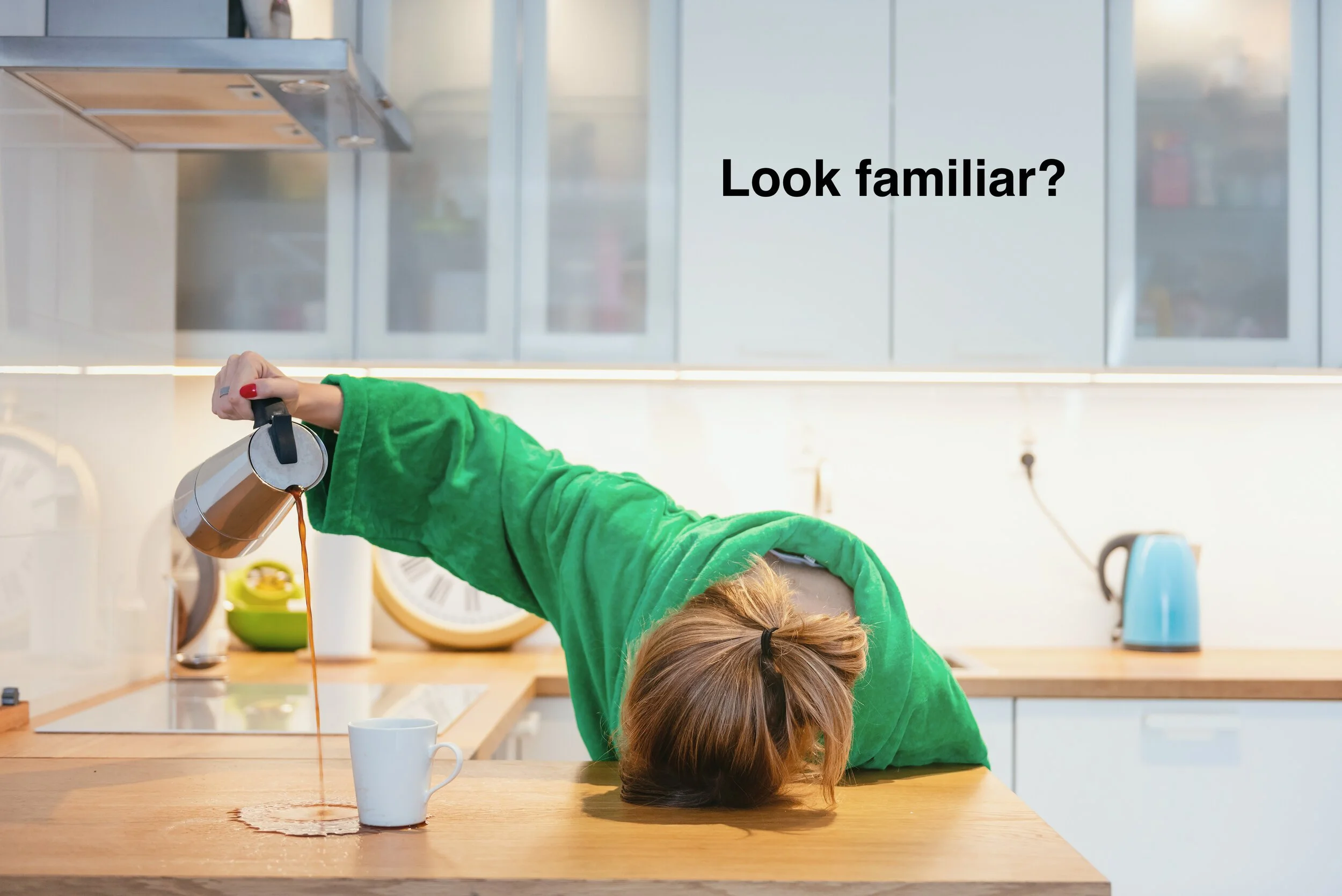10 Tips to Help You Sleep Better
If you’re having trouble getting a good night’s rest, or if you wake up feeling tired, we’ve got some tips and sleep hacks for you to help you sleep better and feel better. The typical sleep hygiene recommendations are great, but often not enough to help you overcome your sleep problems.
How to improve your sleep
Slowing down at the end of the day and turning off your brain can be hard. Don’t get me wrong: some nights I crash as soon as my head hits the pillow and there’s very little that can stop me. But some nights it can take seemingly forever to find my way through the brambly labyrinth of thoughts. Can you relate? Following the recommendations below makes a big difference in my sleep quality, and in my quality of life, and I’m confident that it will in yours as well.
These 10 tips are going to help you achieve the sleep of your dreams.
The first three tips on this list are the non-negotiable if you really care about your sleep.
I’d start with these and see how you feel. Or, if you are the go-getter type and want the best sleep on your block, or if you want to KNOW that you’re getting the best sleep possible, implement all ten recommendations.
1. Keep your schedule consistent to maintain a healthy circadian rhythm
If you are too tired or bored to read any further, just make sure you read and adopt this first tip because it’s by far the most important in achieving quality sleep. You cannot -- I repeat you CANNOT -- make up for lost sleep. Getting less than sufficient sleep during the week and more than what’s needed on the weekend will do nothing to help you. In fact, it’s hurting you. When your sleep schedule is all over the place, your internal clock gets whacked out: When am I supposed to be sleeping? When am I supposed to be awake? What the hell is happening to me? Keep your bedtime and your morning wake up time as consistent as is possible, all seven days of the week.
Also, if it takes eons to fall asleep or you find yourself up for hours in the night, still get up at the same time. I know, this is not fun. It’s really hard to drag yourself out of bed if you didn’t sleep well, but it’s key to improving your sleep. If you spend more time in your bed than you can actually sleep, you’re going to deal with insomnia or other sleep troubles.
2. Watch out for caffeine
It’s no secret that too much caffeine can make it hard to sleep - it is a stimulant after all. Enjoy your caffeinated beverage ritual - I sure do. But be mindful of when and how much you consume. Try stopping caffeine after 12:00 PM and limiting yourself to 1-2 cups of coffee max per day (we’re talking 8 oz, not big gulp size). Everybody responds to caffeine differently, but the urge to grab a coffee to assuage the post-sleep grogginess is actually perpetuating the cycle of crap sleep at night and sleepiness during the day. It can stay in your system for 10 hours!
Try to figure out how much is too much or how late is too late for your body. And be sure to look out for caffeine in the ingredient list of other goodies, like chocolate or different herbal beverages. If you feel like a zombie yet drink 3+ cups of coffee/caffeine per day, schedule a Q&A session with us so we can help you break the cycle and feel your best!
Feel free to skip this if you don’t care, but here are some fascinating details about caffeine and sleep for those who like to nerd out on sleep science: It all has to do with a little thing called adenosine, a molecule that’s supposed to be flushed from our system during sleep. Caffeine is an adenosine blocker (use the term adenosine receptor agonist if you want to impress people) -- it attaches itself to the same receptors that adenosine would normally latch onto...if there weren’t a super-sized dose of caffeine pumping through your veins, that is. This situation prevents the drowsiness that is supposed to occur as the levels of adenosine in the body increase. So, when there’s too much caffeine in your system, adenosine continues to build to a level such that there’s too much for your body to sufficiently flush during sleep. End result: we remain groggy the next day so we need caffeine to feel awake; the caffeine blocks the adenosine yet again, and the venti cup (or red bull, or big gulp of diet coke, or whatever you lean on as your daily stimulant) cycle continues.
3. Focus on relaxation instead of sleep
If you can’t sleep, shift your mindset. Instead of stewing on how much sleep you aren’t getting, focus on relaxing your mind and body. This will be much more productive than worrying - and relaxation can actually be incredibly restorative. Plus, taking the pressure off and reducing your stress level, just might help you fall back to sleep. Sleep DOES NOT respond well to pressure. So stop pressuring yourself to sleep. Make the goal relaxation instead, and reclaim the rest you deserve (we talk a lot more about this phenomena here, and how simple mantras can help).
4. Get out of bed
If you’ve been tossing and turning for what feels like 20 minutes (#6 explains why you shouldn’t be staring at the clock), get up and do a quiet, dimly lit activity in another room. Please don’t work or look at screens. Too stimulating and too likely to keep you awake. Journaling, reading, meditating or listening to a guided relaxation in a comfy chair, light housework or listening to calming music are a few good options. As soon as you feel the urge to sleep again, go lay down. You’ll have built up more sleep pressure so falling asleep will be easier than it was before.
5. Move your clocks away from your bed
Not only can the light from your digital clock (or phone) potentially disrupt your sleep, but positioning your clock in view of the bed makes it way too easy to just watch the time tick away while you’re “supposed” to be sleeping. There’s no point in knowing how long you’ve been awake. Move that clock or phone away from your immediate line of sight so you have one less distraction at night. Plus, relaxing (per #3 above) is a lot easier if you aren’t obsessing over how long you’ve been relaxing. And per #4, get out of bed if it feels like its been more than 20 minutes.
6. Make a bedtime routine that DOES NOT include your phone, TV, or other backlit devices
Maybe you think a bedtime routine is just for kids? Nope! Adults can reap the benefits of a consistent and relaxing routine, too. Especially those of us who don’t fall asleep at the drop of a hat. It doesn’t have to be anything fancy. Just something simple that sets a relaxing vibe and cues your body to prepare for sleep (eg. cup of hot tea, reading/journaling, a minute of mindful breathing, sleep - this is what I do and it takes about 20 minutes.)
7. No screens before bed!
This means no tv, computer, or scrolling. The artificial lights, especially the blue light, can inhibit melatonin production which is an essential sleep hormone. This in turn disrupts your transitions between sleep cycles and delays the onset of REM sleep…meaning, poorer quality sleep even if you get get enough hours.
Are we saying you can’t veg out on Netflix or HBOMax once the kids are in bed? Of course not. But all things in moderation. Try to turn it off about an hour before you want to be asleep. Or at least 30 minutes before sleep. If you MUST engage with a screen, keep it a lower stimulation options, turn on night shift mode wherever possible, make it NOT be work or social media (these activate our nervous system too much), and consider using blue light blocking glasses.
8. Try yoga before bedtime
There are some simple restorative yoga poses that can help calm the body and mind before bedtime. You can search the web for a short bedtime yoga routine, or reach out to us for a personalized bedtime yoga sequence to meet your specific physical and emotional needs (from a certified yoga instructor, mindfulness practitioner, and certified sleep consultant).
9. Exercise for better sleep
Don’t get mad about this one - I know it is very hard to achieve at this stage in life. But 30-40 minutes of aerobic activity at least 4 times per week has been shown to greatly improve the quality of sleep.
If you’re a parent, here are some crafty ways to get exercise, kids in tow: dance parties (if you are an “enthusiastic” dancer like me, you’ll burn a crap load of calories), family bike rides (if you’re towing littles in a trailer it will be a serious work out), races with your kids, a baby wearing hike through the woods or neighborhood, playing marco polo in the pool, workout videos (you may have lots of interruptions but you’ll still get exercise and your kid may get to enjoy a 5 year old’s version of a burpee which is awesome and hilarious), or anything else you can think of that gets the blood pumping. Your kids will also benefit from the physical activity and you modeling for them a active lifestyle.
Dear parents of babies: many babies will be so happy to watch you do an exercise video, jumping jacks, yoga, or anything that involves you moving your body through space in a new way. They love seeing all of the different ways the body can move, and find it wildly entertaining to see you upside down (think down dog), jumping in the air (think jumping jacks), or kicking your legs (think cardio kickboxing). If you let your baby watch you workout while they are awake, you don’t have to wait until they are sleeping or someone else is watching them to exercise!
10. Take power naps
When solid nighttime sleep evades you, take a nap the next day. Power naps are nothing short of miraculous, improving both mood and cognitive function. And they can do you a world of wonders when your sleep was less than stellar the night before. Lay down. Set your timer for 28 minutes (there’s science behind that exact timing). And let yourself rest. Just be sure to get up when the timer goes off. That way you can avoid that zombie-like, post-nap drag that can result from building up too much sleep inertia.
If you’re up all night with a baby or kiddo, go for a bonafide nap (aka don’t set a timer). You need to make up for lost nighttime sleep wherever you can in this case.
If you’re truly suffering from insomnia, don’t nap. The guidance is a bit different for you and we’d love to help.
Reach out for personalized sleep help
All right. Consider yourself nudged. Now it’s time to get serious about sleep, and actually implement some of the above suggestions. You can also get in touch with Little Dipper for a personal sleep coach consultation.
Habits for Better Sleep
- Keep your schedule consistent
- WatchWatch out for caffeine
- Focus on relaxation instead of sleep
- Get out of bed
- Move your clocks away from your bed
- Make a bedtime routine that DOES NOT include backlit devices
- No screens
- Yoga
- Exercise




